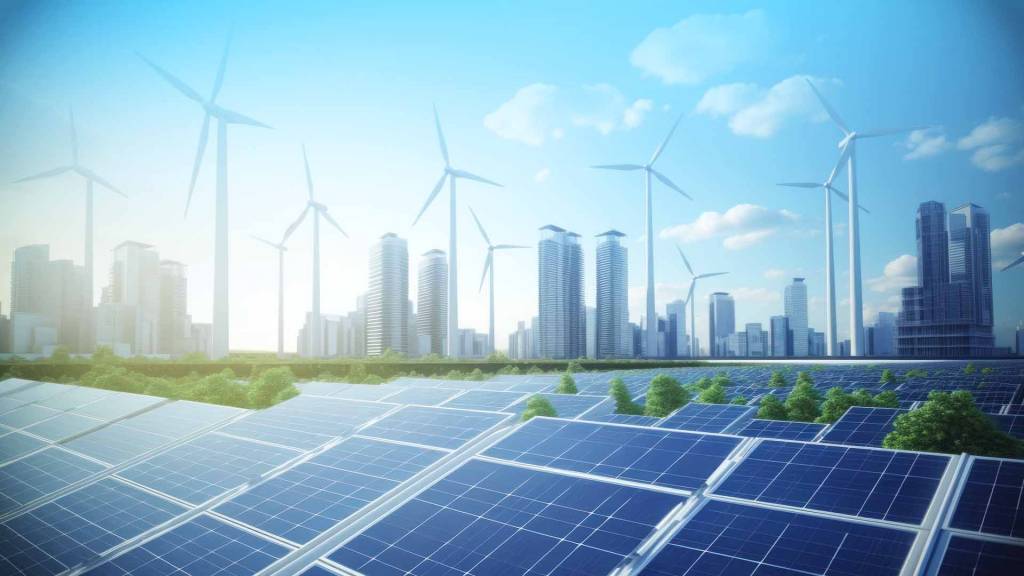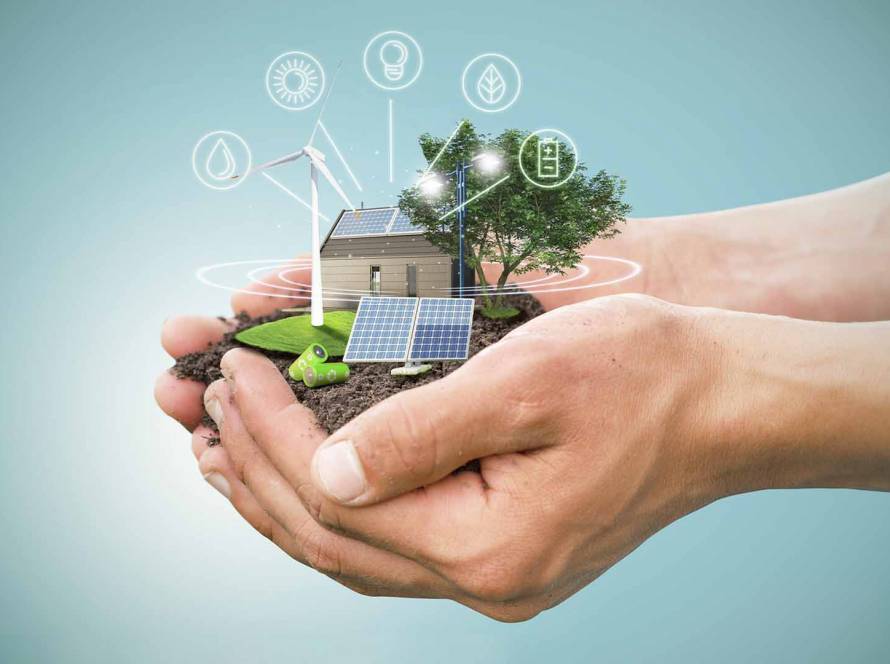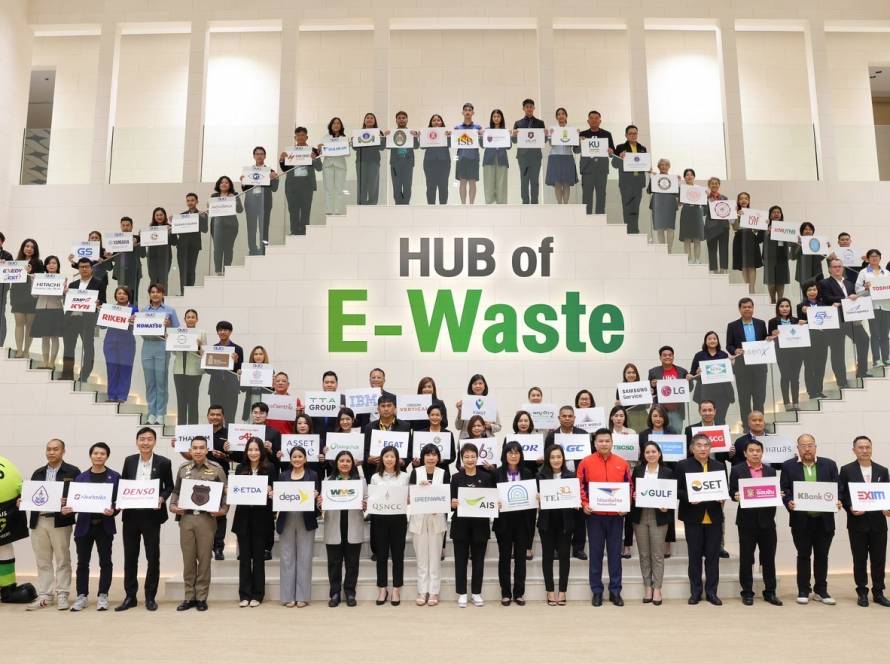Green Skills: The Future Skills for a Sustainable World
In an era where the world is facing severe environmental crises, data from the United Nations Environment Programme (UNEP) has highlighted that current human consumption and production behaviors are the main causes of three major issues: climate change, biodiversity loss, and waste pollution. These crises have triggered a global environmental awakening. “Green Skills” have emerged as a key factor that can help steer the world in a positive direction. Before we dive into Green Skills, let’s first explore “Green Business.”

What is Green Business?
You May Also Like
The global environmental crisis is affecting billions of lives, but amidst these challenges, green businesses are growing rapidly and creating new opportunities. These businesses focus on promoting sustainability and reducing environmental impacts, particularly in the renewable energy sector, such as solar energy, which is strongly supported by governments worldwide to achieve the goals of the Paris Agreement.
In Europe, the “Fit for 55” policy has set a target for renewable energy use at 42.5% by 2030, which is expected to create over 4 million jobs by 2050. Meanwhile, in the U.S., the Inflation Reduction Act (IRA), which came into effect in 2022, is projected to expand green employment by up to 24 million jobs or 14% of the total national employment by 2030.
However, these new measures also impact other countries. For example, the European Union’s Carbon Border Adjustment Mechanism (CBAM), which will take effect on January 1, 2026, will require Thai exporters to submit CBAM Certificates to prove carbon payments according to EU standards.
In Thailand, the Thailand Greenhouse Gas Management Organization (TGO) has set a goal to develop auditors to verify embedded emissions based on EU standards, supporting the CBAM. This is expected to rapidly grow employment in the environmental science sector within export industries.
In summary, while the environmental crisis poses many challenges, it also brings new opportunities for green businesses and employment in related industries both globally and in Thailand. Adapting and preparing for new environmental policies is essential for both the public and private sectors to address upcoming challenges and seize emerging opportunities.

What are Green Skills?
Climate change and environmental crises are significantly impacting the global economy and society. The United Nations Environment Programme (UNEP) has emphasized the importance of changing production and consumption patterns to address these issues, leading to the concept of “Green Jobs,” which focus on developing environmentally friendly businesses and supporting sustainable development.
Data from TCDC shows rapid growth in renewable energy employment in the U.S., increasing by 237% between 2017-2022, compared to only a 19% increase in the fossil fuel and natural gas industries. Moreover, LinkedIn’s Global Green Skills Report indicates a 6% increase in demand for workers with green knowledge and skills, especially in the Asia-Pacific region.
To achieve the goal of limiting global temperature rise to no more than 1.5 degrees Celsius, green businesses, green jobs, and the development of green skills are crucial. These skills include sustainable design and climate change knowledge, which are necessary for many industries, particularly those required to comply with the EU’s CBAM measures.
LinkedIn’s Global Green Skills Report 2023, which analyzed data from over 930 million users in 48 countries, showed that from 2022 to 2023, green business jobs grew by 22.4%, and the number of workers with green skills increased by 12.3%. However, green skills remain rare, with only 1 in 8 workers worldwide possessing more than one green skill. Notably, workers with green skills are 29% more likely to be hired than the general workforce, reflecting the growing importance of developing these skills in the current and future job markets. LinkedIn has identified seven in-demand green skills and related job positions, highlighting the labor market’s direction as environmental protection and sustainable development become crucial global issues.
“Green Skills” have become essential in today’s world. These skills not only help individuals and organizations adapt to environmental challenges more effectively but are also key to driving the transition toward a more sustainable and environmentally friendly society. Developing Green Skills is not just an option but an urgent necessity for everyone to prepare for the environmental challenges we face and to play a part in solving the problems threatening our planet’s future and fostering sustainability.
7 Green Skills and Green Jobs in Demand by Businesses

1. Knowledge and Skills in Climate Change
Skills to have:
- Understanding the causes and effects of climate change
- Knowledge of atmospheric science and ecosystems
- Ability to analyze climate data and statistics
- Familiarity with international climate policies and agreements
- Communication skills to explain scientific data clearly
Related Careers:
1. Meteorologist
- Study and forecast weather conditions
- Analyze long-term climate change trends
- Use computer models to predict future climate changes
2. Agriculture Specialist
- Develop climate-resilient farming methods
- Study the impact of climate change on crops and animals
- Advise farmers on adapting to changing weather conditions
3. Policy Advisor
- Analyze and recommend policies to mitigate climate change impacts
- Coordinate between scientists, policymakers, and civil society
- Monitor and assess climate policy implementation
4. Marine Biologist
- Study the effects of climate change on marine ecosystems
- Research the adaptation of marine life to changes in temperature and sea levels
- Develop conservation strategies to protect marine biodiversity amidst climate change
2. Knowledge and Skills in Sustainable Design
Basic principles:
- Efficient resource use
- Reducing environmental impact
- Balancing economic, social, and environmental needs
Specialized knowledge:
- Eco-friendly materials
- Energy-saving technologies
- Water and waste management systems
- Design for resilience and long lifespan
Key skills:
- Systems thinking
- Creative problem-solving
- Life Cycle analysis of products and buildings
- Use of design and simulation software
Related Careers:
1. Architectural Manager
- Manage eco-friendly building design projects
- Coordinate between design teams, engineers, and contractors
- Ensure designs meet sustainability standards
2. Landscape Architect
- Design outdoor spaces that promote ecosystems
- Plan the use of native, drought-tolerant plants
- Create effective water management systems
3. Director of Interior Design
- Set guidelines for sustainable interior design
- Choose eco-friendly materials and furniture
- Design energy-efficient lighting and air conditioning systems
4. Urban Planner
- Plan sustainable land use and urban development
- Design public transport and bicycle routes
- Create green spaces and public areas that enhance quality of life
5. Construction Administrator
- Oversee construction to ensure sustainability standards
- Manage materials use and waste disposal on construction sites
- Coordinate green building certifications like LEED or TREES
3. Knowledge and Skills in Renewable Energy
Basic knowledge:
- Types of renewable energy (e.g., solar, wind, water, biomass)
- How renewable energy technologies work
- Policies and regulations related to renewable energy
Technical skills:
- Design and installation of renewable energy systems
- Performance analysis and maintenance
- Use of energy system simulation software
Business skills:
- Economic feasibility analysis of projects
- Project management for renewable energy
- Understanding of energy markets and future trends
Related Careers:
1. Business Engineer
- Analyze business opportunities for renewable energy technologies
- Develop business plans and marketing strategies for renewable energy products
- Assess risks and investment opportunities in renewable energy
2. Project Finance Analyst
- Assess the financial viability of renewable energy projects
- Analyze project cost structures and revenues
- Create financial models and sensitivity analyses
3. Distribution Engineer
- Design and develop electricity distribution systems that accommodate renewable energy
- Plan connections of renewable energy systems to the power grid
- Solve instability issues in the power system caused by renewable energy sources
4. Land Acquisition Manager
- Identify and evaluate suitable land for renewable energy projects
- Negotiate land lease or purchase agreements for projects
- Coordinate with local authorities for land use permits
5. Project Sales Engineer
- Present renewable energy solutions to clients
- Provide technical consulting and system design
- Estimate project costs and returns on investment

4. Agronomy Skills
Basic knowledge:
- Soil science and soil management
- Plant physiology and plant growth
- Water management and irrigation systems – Integrated Pest Management (IPM)
Analytical skills:
- Soil quality analysis and plant nutrient requirements
- Crop yield and quality assessment
- Weather data analysis and its impact on cultivation
Management skills:
- Crop planning and rotation
- Precision farming
- Use of information technology in agriculture
Related careers:
1. Sales Operations Assistant
- Support the sales team in presenting agricultural products such as seeds, fertilizers, or pesticides
- Analyze sales data and agricultural market trends – Coordinate between sales teams, customers, and production departments
- Prepare technical documents and product information for customers
2. Entomologist
- Study the biology and behavior of pest insects
- Develop integrated pest control methods
- Research and test insecticide effectiveness
- Advise farmers on pest management
3. Winemaker
- Monitor the quality of grape cultivation for wine production
- Plan and execute the harvest at the optimal time
- Control fermentation and aging processes
- Develop new wine flavors and blends
4. Technical Sales Representative
- Present and sell agricultural products such as machinery, irrigation systems, or precision agriculture technology
- Provide technical advice to customers on product use
- Analyze customer needs and propose suitable solutions
- Conduct product training and demonstrations for customers

5. Energy Efficiency Knowledge and Skills
Basic knowledge:
- Principles of energy conservation and efficiency
- Energy efficiency standards and regulations for buildings and equipment
- Modern energy-saving technologies
Analytical skills:
- Energy auditing and usage analysis
- Using energy simulation software for buildings
- Cost-benefit analysis of energy-saving measures
Management skills:
- Planning and implementing energy efficiency improvement projects
- Monitoring and evaluating energy usage
- Raising awareness and promoting energy-saving behaviors
Related careers:
1. Plumbing Engineer
- Design high-efficiency hot water systems
- Plan water recycling systems to reduce energy loss
- Select water-saving equipment to reduce energy consumption in pumping and heating
- Develop systems for heat recovery from wastewater
2. Utilities Manager
- Plan and manage energy use in an organization’s utilities
- Conduct audits and improve the efficiency of electricity, water, and gas systems
- Negotiate energy supply contracts that are efficient and cost-effective
- Monitor and report energy use and utility expenses
3. Vice President of Facilities
- Set energy efficiency policies and goals for the organization
- Approve and support building energy efficiency improvement projects
- Coordinate with different departments to integrate energy management into business operations
- Report energy performance to senior management
4. Heating and Air Conditioning Engineer
- Design and install high-efficiency HVAC systems
- Improve and maintain air conditioning systems for greater energy efficiency
- Develop automatic control systems to adjust HVAC operations based on actual usage
- Analyze and resolve issues affecting HVAC system energy efficiency
6. Erosion Control Knowledge and Skills
Basic knowledge:
- Mechanisms of soil and water erosion
- Environmental and infrastructure impacts of erosion
- Erosion control laws and regulations
Erosion control techniques:
- Biological methods such as planting ground cover
- Engineering methods like building retaining walls or creating terraces
- Surface runoff management
Analytical skills:
- Erosion risk assessment
- Using computer models to predict erosion
- Cost-effectiveness analysis of erosion control measures
Related careers:
1. Director of Public Works
- Plan and oversee city infrastructure projects
- Set policies and measures for controlling erosion in public areas
- Allocate budgets for erosion prevention and remediation projects
- Coordinate with various agencies in managing erosion issues
2. Construction Inspector
- Inspect compliance with erosion control measures at construction sites
- Evaluate the effectiveness of installed erosion control systems
- Report violations of erosion control requirements
- Provide recommendations for improving erosion control measures
3. Survey Project Manager
- Plan and execute surveys of erosion-prone areas
- Use GPS and GIS technologies to map risk areas
- Analyze topographic data to identify erosion control points
- Create reports and present survey results to stakeholders
4. Civil Designer
- Design drainage systems and erosion control structures
- Use CAD software to create blueprints and construction details
- Develop environmentally friendly and efficient erosion control designs
- Collaborate with engineers and environmentalists to integrate erosion control into construction projects
5. Transportation Engineer
- Design drainage systems for roads and railways
- Plan erosion prevention for transportation infrastructure
- Assess the impact of transport projects on surrounding erosion
- Develop maintenance guidelines for transport systems to reduce erosion risks

7. Environmental Awareness
Basic knowledge
- Ecosystems and the relationship between living organisms and the environment
- The impact of human activities on the environment
- Concepts of sustainable development and natural resource conservation
Related skills:
- Environmental impact analysis
- Communicating and educating the public about environmental issues
- Developing and implementing environmental projects
Practical actions:
- Reducing resource use, reusing, and recycling
- Supporting environmental policies and laws
- Participating in environmental conservation activities
Related careers:
1. Park Manager
- Manage parks and natural resources
- Develop conservation and ecosystem restoration projects
- Organize environmental education activities for visitors
- Coordinate with local communities on natural resource conservation
2. Safety Assistant
- Inspect and assess environmental risks in the workplace
- Develop and implement waste and hazardous material management plans
- Train employees on environmentally friendly practices
- Ensure compliance with environmental laws and regulations
3. Geographic Information System (GIS) Officer
- Create and analyze maps displaying environmental data
- Monitor land use changes and their environmental impacts
- Support conservation planning and natural resource management
- Develop environmental warning systems using GIS technology
4. Geographer
- Study the relationship between humans and the physical environment
- Analyze the impact of climate change on landscapes
- Research human settlement patterns and their impact on ecosystems
- Advice on sustainable land-use planning
5. Archaeologist
- Study the relationship between ancient civilizations and the environment
- Analyze the impact of past climate change on human societies
- Develop environmentally friendly methods for preserving archaeological sites
- Educate the public on the importance of conserving cultural and natural heritage
Many may see green skills as distant, but they are vital in a green economy and sustainable development. According to LinkedIn, green job positions increased by 22.4% from 2022 to 2023, but only 1 in 8 workers globally possess more than one green skill. Workers with green skills are 29% more likely to be employed than the general workforce, reflecting the high demand for environmental and sustainability professionals. Developing green skills is essential for the transition to a green economy and addressing environmental challenges—something we should all take seriously. If the opportunity arises, it’s worth studying and helping make our world more sustainable together.



